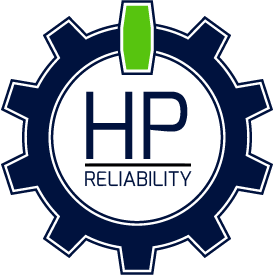2nd Habit with Peter Horsburgh
Whenever there s a problem in the plant, it always comes to finding the root cause if you are looking to solve it and stop it from reappearing later on. To successfully do that, you need to have what s going on with your plant. You should have the complete understanding of the processes and the events that might have led to that issue in the first place. It isn t always a single root causes that results into a failure. It can be a number of small things that contribute to that problem and result in a failure. So, there can be multiple causes for a single problem.
In this episode, we covered:
- What is Root Cause Analysis?
- Learn about 5Y!
- How can you apply RCA effectively?
- And much more!
There are a number of methods that can be used to find the root cause. Root Cause Analysis is an advanced technique but 5Y can be used as well to start with the process. It is a simple technique that everyone can understand and implement for a solution. Once you have got everyone on board to do the basics and really understand what the problem is? You can start doing advanced things such as using proper tools for implementing solutions. The end goal is to prevent the problem from occurring again.
You should always have a process in place to accomplish that goal because temporary fixes won t solve your problem. You need to have that process to implement all the solutions successfully and finding the best ones along the way. You also need a tracking mechanism to measure the success. You don t need to perform root cause analysis on everything but never miss a critical asset either. Anything that can cause you a significant loss is worth performing RCA as you wouldn t want to suffer losses over and over again. There can thresholds set for performing RCA as well. When that threshold crosses, you can implement advanced solutions to make sure that production process resumes as soon as possible.
You should have a mindset, get the support of your team, and implement useful actions to get that return on your investment. You can set triggers and targets to make sure that you get the results that you need from your RCA process. You can always revise these targets and thresholds once you see significant decrease in the defects. It helps you stay ahead in the production processes and devise systemic processes towards best solutions. Team work always helps you broaden the scope of problems and solutions.
Sometimes, you have to enlist the help of external experts but most of the times, experts in the cross-sectional departments or experienced team members can help you get the knowledge you need to solve an unusual problem. It s all about having an open communication channel and asking the right questions. You can apply triggers and targets strategy in your routine work as well. You should get your team together, have them weigh in for the solutions, and start implementing them. Having good production managers and maintenance personnel contributes to the success but persistence is the key in this process.
Eruditio Links:
Nancy Regan Links:
- What Tool? When? A Management Guide for Selecting the Right Improvement Tools, 2/E by Ron Moore
- 5 Habits of an Extraordinary Reliability Engineer by Peter Horsburgh
- Reliabilityextranet.com
- Peter Horsburgh LinkedIn
Rooted In Reliability podcast is a proud member of Reliability.fm network. We encourage you to please rate and review this podcast on iTunes and Stitcher. It ensures the podcast stays relevant and is easy to find by like-minded professionals. It is only with your ratings and reviews that the Rooted In Reliability podcast can continue to grow. Thank you for providing the small but critical support for the Rooted In Reliability podcast!
The post 166-2nd Habit with Peter Horsburgh appeared first on Accendo Reliability.

